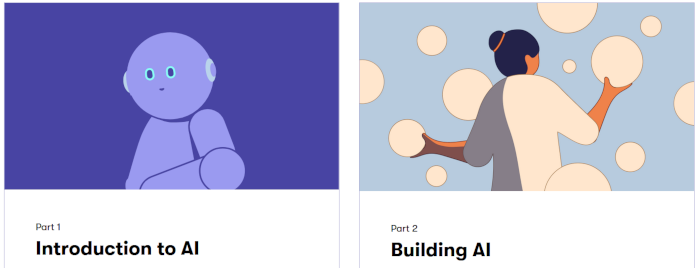
Elements of AI
Since ChatGPT went public on November 30, 2022, the world seems to have changed. My LinkedIn timeline was flooded with posts about ChatGPT and its applications. As is usually the case with new things, the timeline was also flooded with self-proclaimed experts. It looks like everybody is focusing on prompting though, which, although quite useful, puts you in the "user" seat. Well, I was never too much of a user.
Not that I don't like prompting; it is interesting indeed. But I do have the need to understand more; the science behind what makes it tick. So I decided to take the Elements of AI courses, offered free of charge by the University of Helsinki and MinnaLearn, to learn more.
There are two distinct courses. The one called Introduction to AI is, as the name implies, an introduction to Artificial Intelligence and Machine Learning in general, focusing on fundamental concepts around the use of AI in the real world, as well as Neural Networks. It is a theoretical course, with some quizzes to validate understanding of the concepts.
The second course, Building AI is a mix of theoretical knowledge and practical implementation. One can take the theoretical path at the "Beginner" level, or attempt the practial coding (in Python) exercises to try and qualify for the "Intermediate coding" or even the "Advanced coding" certificate depending on the complexity of the exercises attempted. Which is what I did, being now the proud owner of a Course certificate with Advanced Honors for Building AI as well as the Certificate of completion for the course Introduction to AI.
Students of some European Universities can even claim ECTS (European Credit Transfer and Accumulation System) credits which count towards their degree.
It was quite an enjoyable activity, which built upon the minimal knowledge that I had as everybody else, and allows me to think more widely about other interesting aspects, such as the security of generative AI and LLMs.